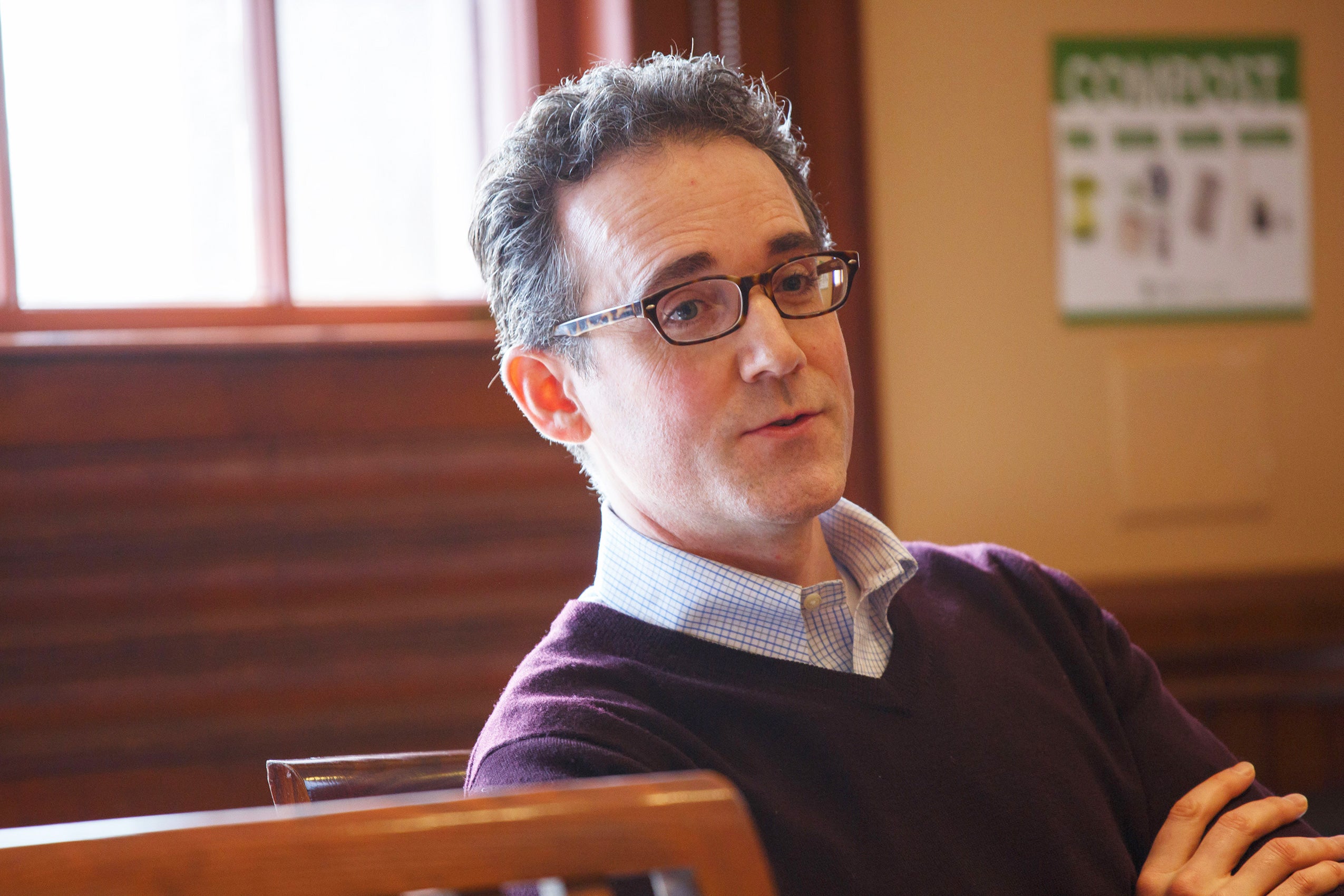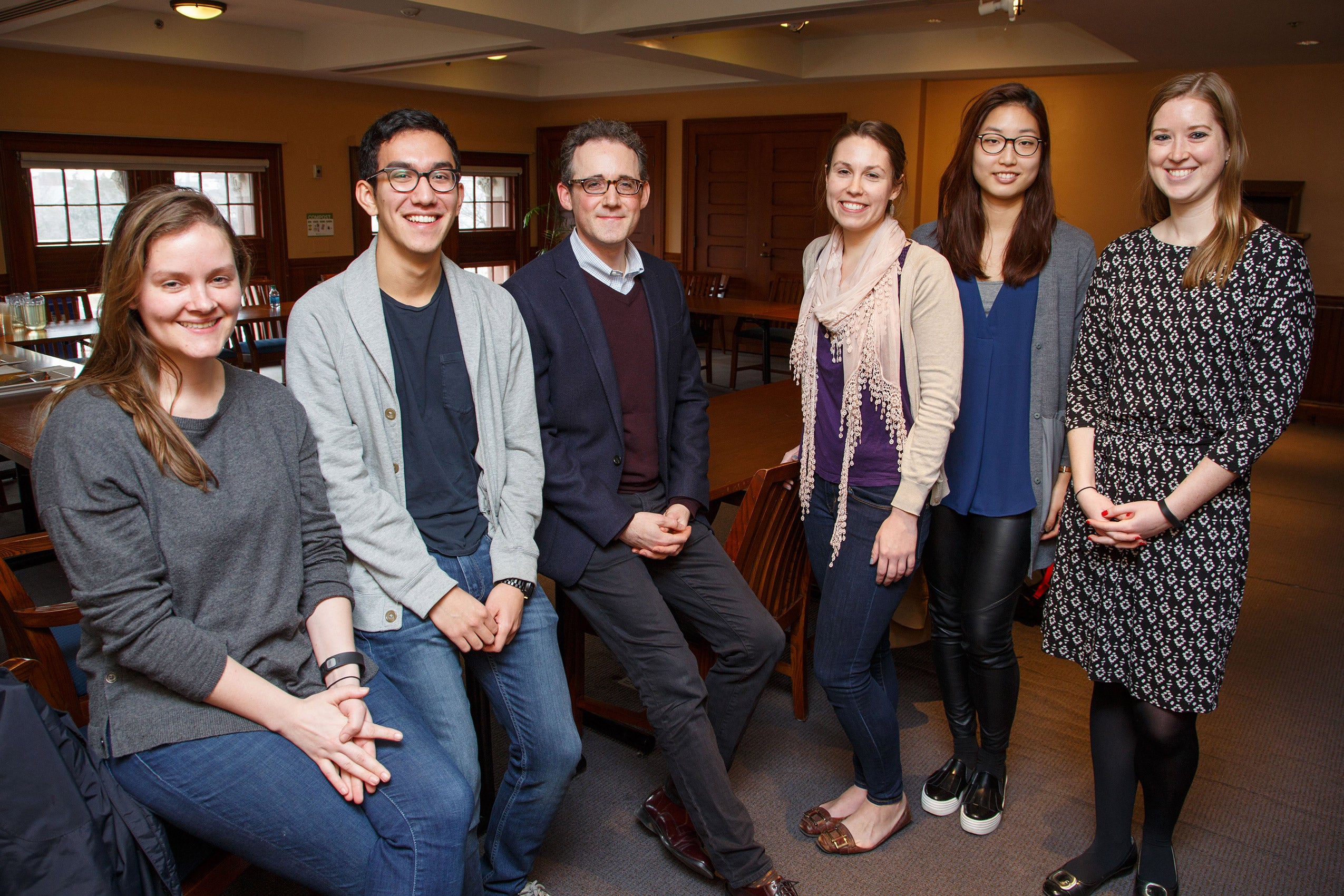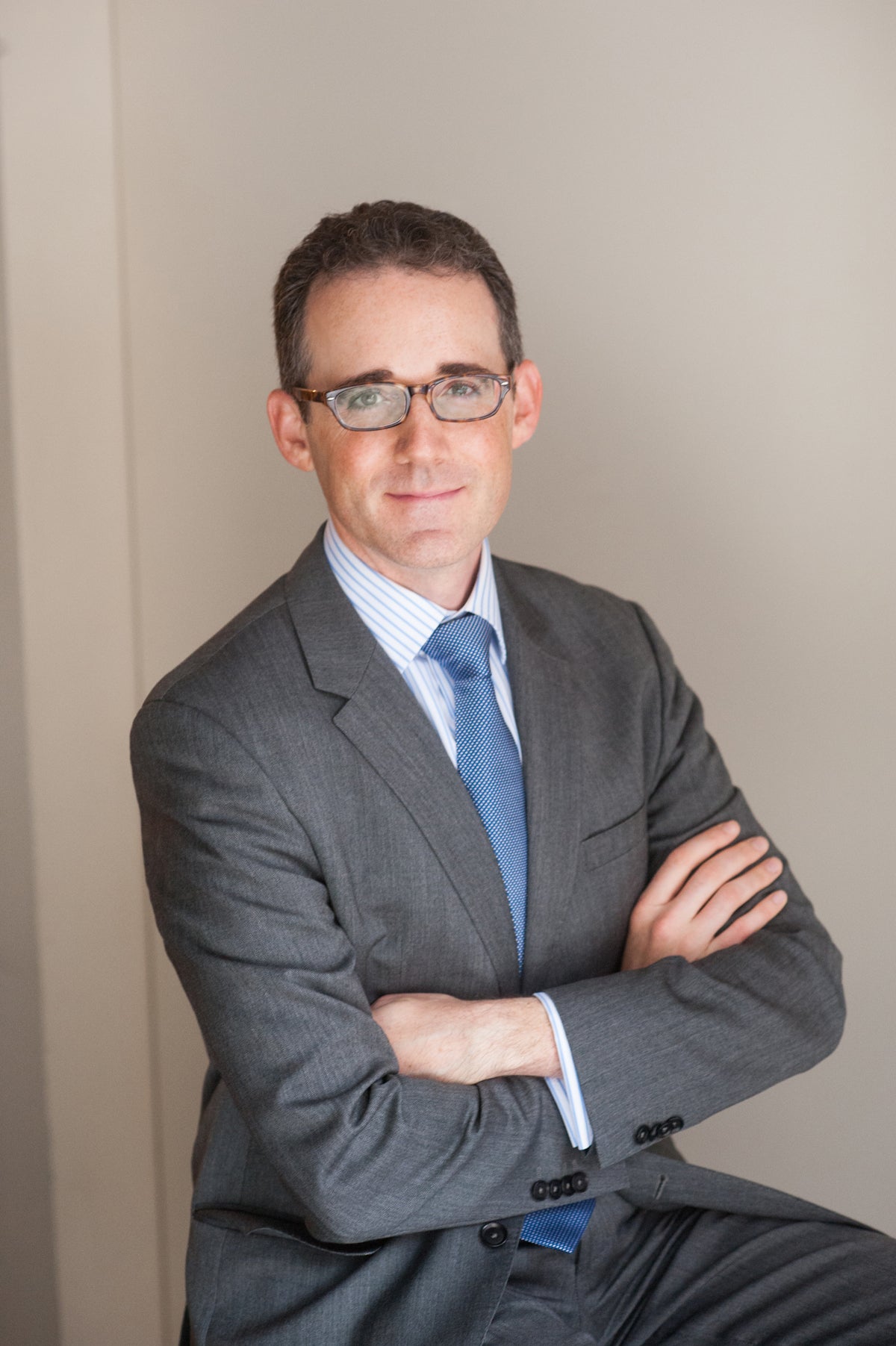Brett Dakin ’03, a 2001 Chayes International Public Service Fellow and currently the general counsel at the Child Mind Institute in New York, returned to HLS this spring to talk with recent Chayes Fellows about his fellowship experience and his career path since graduating from HLS. We caught up with Dakin to ask him more about his experiences and reflections.
I came directly to HLS after spending several years living and working in Laos. During the Vietnam War, Laos was subject to a massive bombing campaign by the U.S. military. Living there and seeing how, decades later, the country was still coping with the effects of war—unexploded bombs continue to kill and injure Lao people every year—made me very interested in how to rebuild societies after an upheaval or conflict. I touched on this in my book about the experience, “Another Quiet American: Stories of Life in Laos.”
When I was a 1L the concept of the Chayes Fellowship, to give students direct access to governments and inter-governmental organizations, was really appealing to me. There were very few opportunities like that at the time—I am very grateful to the Chayes Program for making it possible. When considering where to spend the summer, I focused on Bosnia. Back then, it was a key place to go if you wanted to learn about rebuilding a society after war, how to bring different communities together. Remember, the attacks of September 11, 2001, had not yet happened.
In Sarajevo, I worked for the Human Rights Chamber for Bosnia and Herzegovina, which had been created as part of the peace agreement that finally brought the war in the former Yugoslavia to an end. The Chamber heard claims from Bosnian citizens against their government alleging violations of their human rights since the end of the war. These were claims about issues like property rights, or employment and religious discrimination. I was basically a clerk, assisting the local and international judges who would convene in Sarajevo to hear these claims.
The Chamber aimed to help create a culture of respect in Bosnia for human rights and the rule of law—bridging ethnicities and trying to bring a measure of justice to people who had suffered. Since the Chamber’s jurisdiction was limited to claims under the European Convention on Human Rights, it was also an important part of bringing Bosnia into the European fold. It was a fascinating experience, sitting in on the judges’ deliberations. They were always focused on how to help the country continue on the path to recovery, peace, and reconciliation.
Did that experience affect any of your steps after HLS?
Definitely. This theme of helping societies recover from the legacies of war has been a constant. An institution like the Chamber looks forward to a new society where atrocities are less likely to happen again. At the same time, institutions that look backward to address the crimes that may have been committed are also necessary. Having seen the places in Bosnia where so many horrible things had happened, I wanted to examine these incidents through the lens of international criminal law.
So after law school, I clerked for the International Criminal Tribunal for the former Yugoslavia in The Hague. That experience was all about the other side of recovering from war—prosecuting war crimes, using traditional methods of gathering evidence and determining whether the acts constituted crimes under applicable law. I clerked for the Tribunal’s only French judge. A Sheldon Fellowship also helped me to travel in the former Yugoslavia to study local efforts to address war crimes.
When I returned to the U.S., I wanted to remain involved in some way with these issues. So as an associate at Cleary Gottlieb in New York I was able to find opportunities to do some pretty non-traditional pro bono work. One project involved researching and writing memos for the registrar of the Special Court for Sierra Leone. Another was assisting Independent Diplomat, an organization that represents the people of Western Sahara, which remains a contested territory even today, in their efforts to utilize their own natural resources.

How did you end up where you are now, as general counsel at the Child Mind Institute?
At Cleary I had done an externship at Lawyers Alliance for New York, which provides legal services to nonprofits, so I decided to see what it would be like to practice law in a nonprofit environment.
I took a position at Rainforest Alliance, and found that the skills I had developed as an associate—essentially, problem-solving—were directly applicable to my new job. I was responsible for supporting the organization’s grant-funded work as well as its auditing services, negotiating with funders as well as companies like McDonald’s and Staples that wanted to use the Rainforest Alliance seal on their products. After three years, I felt it was time for a new challenge and found the role I have now.
Like Rainforest Alliance, the Child Mind Institute is something of a hybrid entity—bringing together the treatment of patients with research on psychiatric and learning disorders as well as public education about children’s mental health. The organization has a medical practice, where we see patients and provide care, and we also conduct research on the developing brain to better understand why children develop disorders like anxiety and depression. I’m really happy in this role. It’s fun working for an organization that provides direct services in the community where I live.
You’ve also served as chair of the board of a nonprofit organization, Legacies of War. How has that fit in with your career?
I started working with Legacies of War when I was at Cleary, as a way to stay connected with Laos. Now, along with my membership in the Council on Foreign Relations, it’s an important way for me to remain engaged in international affairs. On a per capita basis, Laos is the most heavily bombed country in history. A lot of the bombs didn’t explode on impact, so they continue to kill and injure people today, 40 years later, because they are lodged in the soil throughout the countryside. Legacies is an advocacy organization that encourages the U.S. government to spend more money to clean up the bombs and to provide assistance to survivors of accidents.
We’ve had a lot of success. When Legacies first started, the U.S. government spent about $1.5 million a year on these programs in Laos. In the upcoming fiscal year, $19 million has been allocated. It’s still not enough, so we have to keep up the pressure. But there’s been a sea change in awareness and willingness to address the past. Hillary Clinton was the first secretary of state to visit Laos in 50 years when she went in 2012, and Obama is going this September—the first sitting president in history. We hope that, like Secretary Clinton, he will acknowledge this past and talk about the need to spend more money and apply more effort to bring this particular legacy of war to an end.

Do you have any advice to Chayes Fellows and other students considering their career paths after HLS?
It’s important to think very broadly about what is possible with a law school education. Focus on what you would like to be doing every day—what kind of interactions you like having with people, what tasks you like to complete every day, what skills you want to utilize—as opposed to just subject matter. In law school, you take classes in topics like criminal law and health law. But in the workplace, you develop skills that are transferable across subjects and fields.
For me, the key skills for a general counsel are active listening and practical problem-solving—helping people think through, and then solve, the problems that they face. It may seem strange, but my work at the Tribunal is actually relevant to what I’m doing now, even though they obviously cover very different subject areas. In The Hague I’d listen to testimony about atrocities that were committed in Bosnia during the war: beheadings, even rape. And then analyze that testimony within a particular legal framework.
Now, I am often in the position of dealing with very, very difficult stories—violence in the home, kids who are suicidal, patients who have been the victims of rape. As a lawyer, you’re expected to deal with these issues dispassionately, to be the person in the office with whom people can talk about a whole range of issues. It’s important to strike the right balance between empathy and providing the right answer according to the law.
